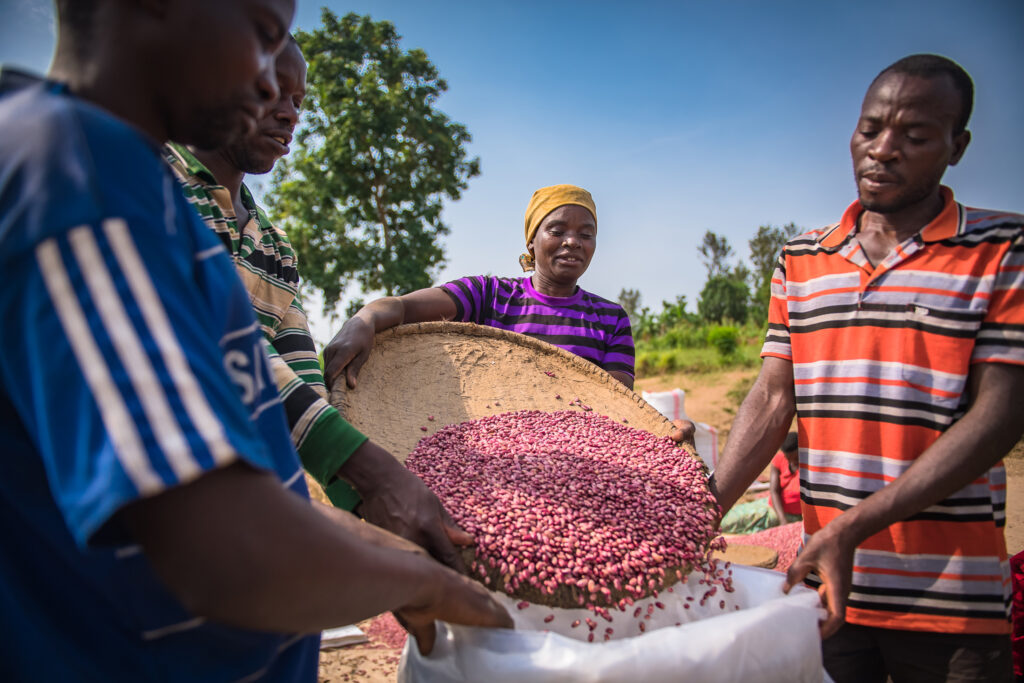Customized New Extensionist Learning Kit
Customized New Extensionist Learning Kit (NELK)
CNFA’s Feed the Future Rwanda Hinga Weze Activity in partnership with stakeholders across Rwanda has launched the customized “New Extensionist Learning Kit” (NELK) to build the capacity of agricultural extension agents. The learning kit contains modules designed for self-directed, face-to-face, or blended learning as a resource for individual extension field staff, managers and lecturers.
Background
The NELK modules were originally developed in 2016 by the Global Forum for Rural Advisory Services (GFRAS) to increase the level of functional skills for agricultural extension agents, in response to the growing demand from extension and rural advisory service providers worldwide for online training that is adapted to local contexts.
These modules as presented here aim to enhance extension and advisory services via the Customized Agriculture Extension System (CAES), within the context of Twigire Muhinzi Rwanda’s national extension program. To roll out the modules in Rwanda, CNFA and GFRAS have partnered with the Feed the Future Developing Local Extension Capacity (DLEC) Activity and the Rwandan Ministry of Agriculture and Animal Resources (MINAGRI), among others. With the engagement of local experts, the modules are customized and adapted to the Rwandan context and provide digital agricultural extension tools, curricula and assets to train extension service providers on innovative approaches to building the capacity of local farmers.

Modules
Agricultural Entrepreneurship
Over the past 30 years, there has been a major shift in agricultural markets and the international trade of agricultural products. The world is moving from local and national markets towards a global system of trading, which means that neighboring farmers working on small plots of land may be competing with large industrial farmers from another country in a single marketplace.
This module familiarizes extensionists with the key terms and concepts required to introduce agricultural entrepreneurship to farmers, farmer groups and agricultural businesses and to support improved productivity and market engagement. The module provides a practical approach to improving the knowledge, skills, and attitudes of extension agents as they seek to help the farming community take on new enterprise skills.
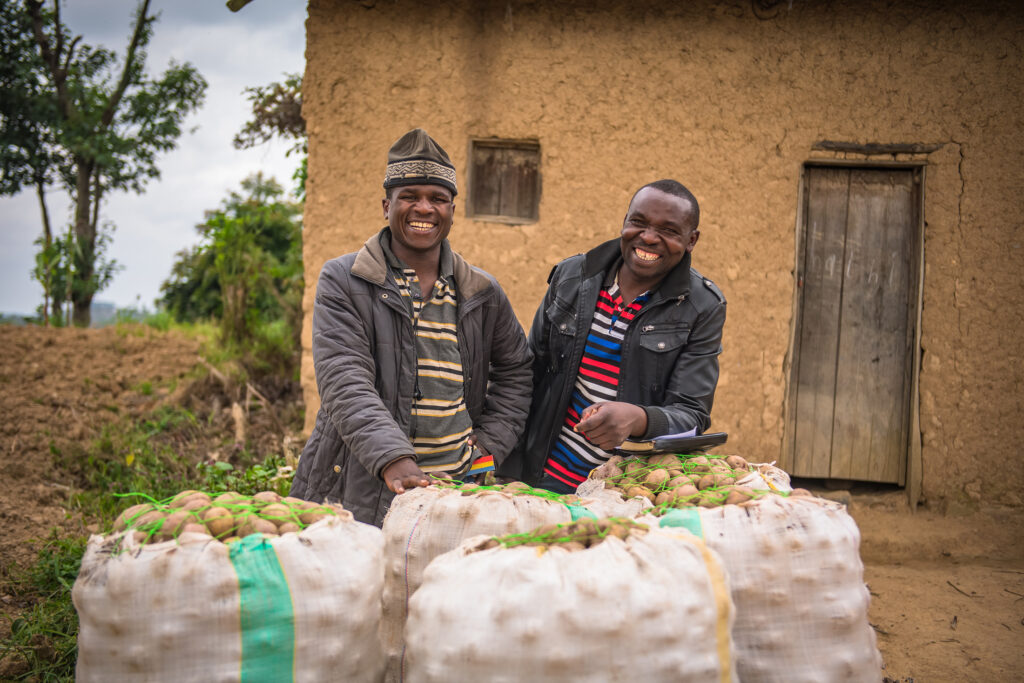
Climate Smart Agriculture in Extension and Advisory Services
Extension professionals and Extension agents in Rwanda work under complex and uncertain environments (ecosystem, socioeconomic or political). Equipping extensionists with Climate Smart Agriculture (CSA) skills is key to minimizing negative agricultural impacts triggered by unforeseen shocks such as climate change. This module will focus on approaches to understanding climate change risk and climate-smart agriculture, climate information services for Agriculture, Agriculture Extension and advisory services for climate-smart agriculture, and gender, and other adaptive options to climate change.
This module aims to familiarize you with climate-smart agriculture (CSA) in Extension and Advisory Services (EAS) in Rwanda. You will be introduced to the concepts of climate change risks and uncertainty in order to better understand the impact of factors such as market and climate variability in the agricultural sector. You will also be provided with skills, tools, and knowledge to address these factors through the use of CSA strategies. Remember that this module not only focuses on improving your own adaptive capacity to climate change but also focuses on your ability to improve the capacity of rural farmers; a primary goal of EAS.
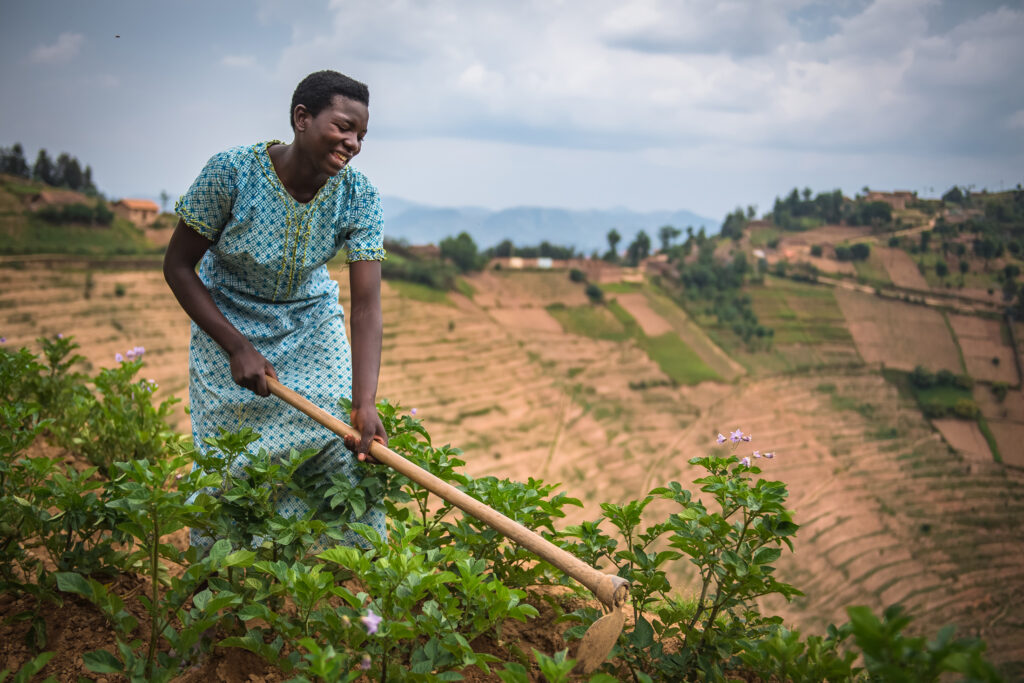
Community Mobilization
Community mobilization is a process whereby local groups are helped to clarify and express their needs and objectives and in taking collective action to meet them. It emphasizes the involvement of the people themselves in determining and meeting their own needs. It is closely linked with participation and resilience and recognizes that the problems the local population may face cannot always be solved on an individual basis. The main purpose of community mobilization is to get the community to recover from any shocks they may experience and to be able to deal with similar situations in the future in a self-sustaining way.
In this module, you will learn what community mobilization is and why it is important by discussing the roles of culture and diversity in a community and by describing the roles of gender, youth, and people with disabilities. You will learn about using appropriate approaches for community mobilization, including planning and carrying out a livelihood assets assessment and analyzing, interpreting, and applying the information from these assessments. You will also learn to recognize different problem-solving approaches. In designing processes and methods that involve women, youth, and people with disabilities, you will be able to discuss the role of leadership development in community mobilization and apply resource mobilization strategies in community mobilization.
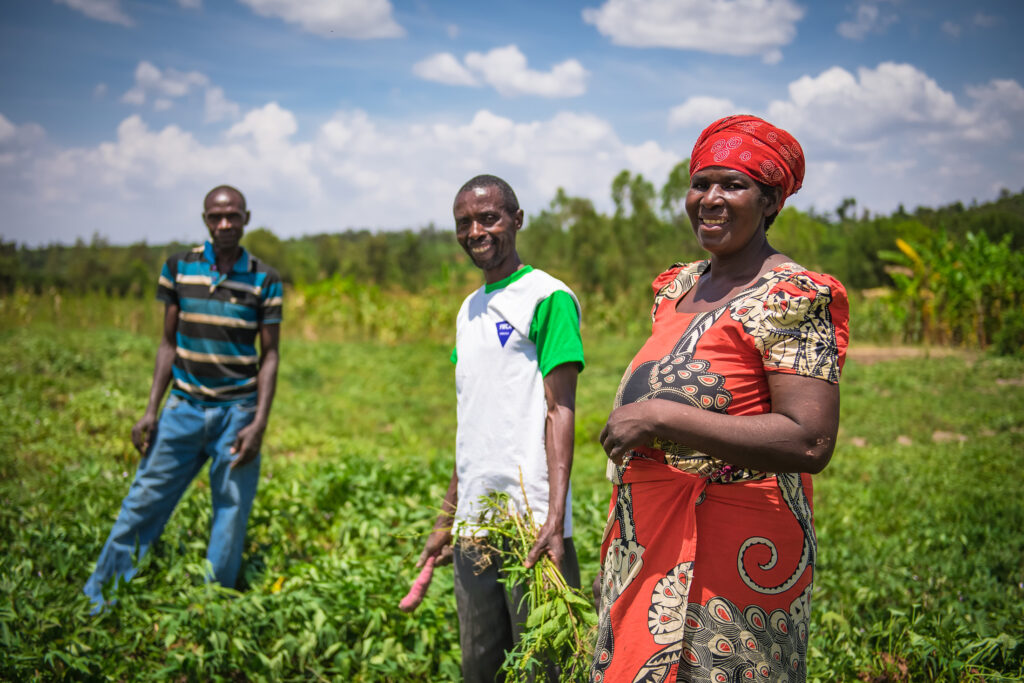
E-Extension
Access to information is one of the key factors in accelerating agriculture technologies adoption among farmers. Technology transfer to farmers is achieved through agriculture extension and advisory interventions. The history of agriculture extension in Rwanda shows that Rwanda’s extension system is based on physical meeting of farmers and extension agents. The technical information is mainly printed on flyers, brochures and booklets provided to extension workers and farmers.
This module is for extension practitioners who want to use electronic approaches to complement their physical face-to-face activities and paper-based approaches. This module will help you understand how electronic approaches can benefit both you and your farmers. It outlines what is involved and the advantages and disadvantages of several e-tools that you can use straight away.
These e-extension tools are especially helpful in overcoming the limits of physical distancing imposed as a result of COVID-19. This module has ideas and suggestions that will help you to embrace new and unfamiliar technologies, and includes guidelines and case studies that give examples of how these technologies have been used in various situations. The module covers both low-tech and high-tech solutions, so if you do not have stable internet connectivity, there is still something here that will be useful to you.
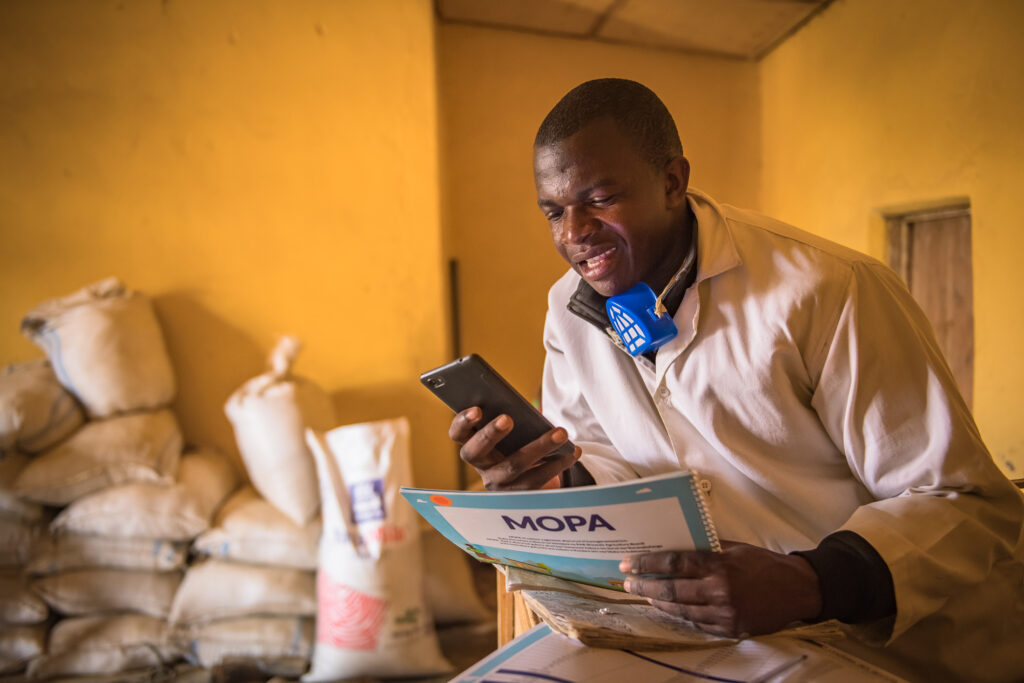
Nutrition-Sensitive Extension
Every country on the earth is affected by poor nutrition and the results of poor nutrition affect most families. What can agricultural extension professionals do to support better nutrition? And what might be unrealistic to expect of extension? By completing this training, you will have the opportunity to consider these questions and others and to find the right answers for the situations in which you work.
The module covers dietary recommendations and the results of poor nutrition, ways that agriculture and nutrition impact each other, things that you can change within a community in order to improve nutrition and how to effectively partner with others working on improving the nutrition of different communities.

Role of Extension in Supporting Value Chains
For many years, the role of the extension agent was to help farmers produce more, which was an effective strategy when most farmers sold their goods directly to Government. However, farming conditions and circumstances have changed and farmers currently work with or compete with local and international farmers to sell their goods at prices that enable them to cover their production costs and provide them with a profit. In this new and highly competitive market, the role of the extension agent has also changed, in that the new extension agent needs to support farmers in several areas.
The purpose of this module on marketing and value chain is to help extension agents in Rwanda to understand the basic components of marketing value chains and the way in which extension agents can work with farmers and other key chain actors to target market opportunities and to collaborate with farmers to develop an action plan that they can use to engage with the markets successfully.
In this module the focus is on the importance of agricultural marketing for farmers, the analysis of the agricultural market and the value chain, as well as market linkage methods. You will also be familialized with the use of market analysis tools and value chain upgrading strategies
